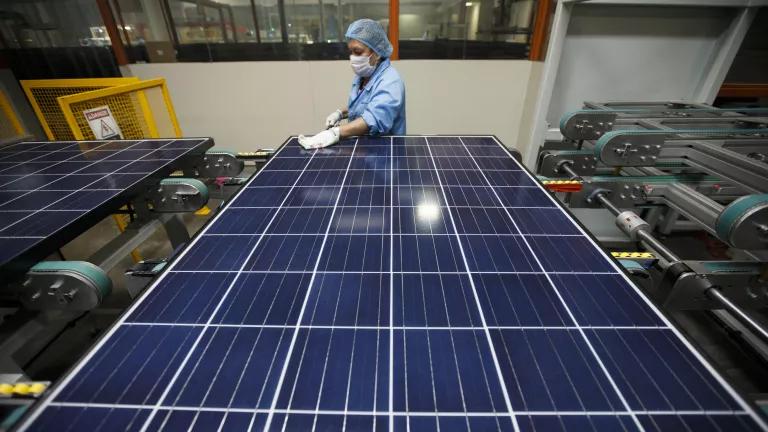A group of NGOs spanning different continents has just released a new report on Carbon Capture & Storage (CCS). (see press release here) The groups include Clean Air Task Force, the Climate Institute, E3G, NRDC, Pembina, WRI and ZERO. The report was presented at the UNFCCC summit in Doha, which is under way right now.
The report makes a case for CCS as one of several valuable tools in the broader climate mitigation portfolio. This is not an endorsement of CCS as a panacea or as our preferred climate solution. Increasing energy efficiency and utilizing renewable energy can and should come first. However, the size and extent of today's global fossil fuel infrastructure is so large that additional tools, like CCS, can make the pursuit of emission reductions faster, cheaper and more certain. Our atmosphere has a finite carbon budget if we are to avoid dangerous climate change, and recent infrastructure additions - primarily coal power plants in Asia - alongside older and projected facilities pose a serious threat of exhausting that budget as David Hawkins describes in his presentation here.
The report examines the environmental, economic and political rationale for the use of CCS, the status and readiness of the technology, and provides summaries of developments and policy needs from key countries and regions around the world where CCS deployment has potential. It concludes:
"Tackling climate change requires aggressive and prompt action. A number of technologies are available to reduce global carbon emissions. CCS has a valuable role to play in the climate mitigation portfolio, alongside other solutions. First generation CCS technology is commercially available today, enabling the deployment of the technology to begin worldwide immediately. Extensive research has shown that this can be done safely and effectively, with the right regulatory oversight. Regulatory frameworks for carbon dioxide injection are being fi nalised in various countries around the world, and it is important that these contain adequate safeguards for public health and the environment, and that all countries abide by minimum standards.
The main barrier for its adoption today is the price premium that it entails, but signifi cant cost improvements are expected in the near future once serious deployment begins. Governments have a pivotal role to play in enabling CCS deployment through complementary policies that include limits and a price on carbon emissions, incentives for early deployment and performance standards for specific types of facility. Enhanced oil recovery using carbon dioxide is expected to play an important role in the early years of CCS deployment in certain countries, but appropriate regulation of the practice is needed to ensure permanent sequestration. Internationally, a dedicated fi nancing mechanism to enable CCS deployment in developing countries with industrialised country participation is needed.
CCS has an excellent track record to date. Nonetheless, support for the technology is not universal, for a variety of reasons. Our organisations are engaged in advocating for the safe, effective and prompt deployment of CCS technology as a climate mitigation tool. The earth’s climate will not wait — nor should we."
In relation to the international negotiations, our groups in the report make the case for a dedicated international financing mechanism for CCS projects in developing countries. The technology's inclusion under the Clean Development Mechanism is unlikely to result in deployment at the scale needed to make a significant dent in emissions. Even though the carbon budget is gradually running out, we remain hopeful that nations and the international community will act in time.


